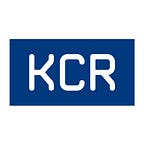A Q&A with Dominika and Szymon, KCR Clinical Team Leaders
As the COVID-19 pandemic situation has heavily affected countries across the world, onsite monitoring visits by Clinical Research Associates (CRAs) were put at risk. In KCR’s main operational regions — North America, Western Europe, Central Europe and Eastern Europe — normal, onsite travel was limited and CRAs had to face this new situation and carry out responsibilities under new circumstances. To provide insight on the reality of CRA work, we interviewed two KCR Clinical Team Leaders, Dominika Brzezinska & Szymon Nowak, who lead CRA teams through this new reality.
Q: How did the pandemic affect CRA’s travel to sites?
DB: During April and May, travel to sites was affected most significantly. In several countries — like Bulgaria, Hungary, Ukraine — every person traveling was obligated to have written confirmation of travel purpose and destination. In some cities, policemen even guarded city entries and stopped cars to check documents. Not all means of transportation were available; domestic flights were cancelled, and this affected large countries like US and Ukraine alike and prolonged travel time for smaller ones.
Q: Were CRAs able to stay overnight at their destinations?
SN: Generally, there were issues with overnight stays in all countries. At the peak, all hotels in Bulgaria and Hungary were closed. In several other countries like Poland, US, and Ukraine, there were some limitations (stay was allowed for business purposes only) but a lot of hotels were closed anyway. During periods with heightened restrictions, the CRA was organizing a one-day visit or CRAs were traveling to the site daily if located near their residence. Recently, the situation has returned to normal across regions.
Q: Were onsite monitoring visits possible at all during the peak?
DB: It depends. For example, in Hungary, US, and UK there was no possibility to perform onsite visits. In other countries, some hospitals were closed as they were dedicated to COVID positive patients only. At smaller, private sites it all depended on the site’s decisions. Sites were obliged to provide safe working conditions for CRAs, so they limited the number of CRAs working in the same room and site staff availability was also limited.
Q: Has this situation changed recently?
SN: Yes, in most countries, onsite visits are possible. However, the ratio of remote to onsite visits depends on the country. In the UK, they still do not allow onsite visits and most US sites do not allow CRAs onsite. While performing onsite visits, CRAs need to be prepared for limitations and they must use personal protection (mask, gloves) always. Visits have been planned to avoid unnecessary interactions with site staff and patients. For example, in the US, site staff continue to work remotely and their availability for face-to-face meetings is limited. This forces CRAs to be well prepared for one meeting with Investigators instead of frequent F2F interactions.
Q: What procedures were implemented by sites to protect visitors during on-site visits?
DB: All sites across regions introduced additional personal safety measures like the obligation to wear masks, gloves and use of disinfection liquid. Many sites restricted movement around the site and face-to-face contact with staff was limited in time and switched to remote if possible. Some sites registered the temperature of all visitors. At US sites, it is required that all visitors complete Safety Health Questionnaires. In Bulgaria, at one site, the CRA was provided with full protective gear (costume, mask, gloves) after thorough disinfection of all clothes and belongings. Procedures implemented by the sites sometimes complicated CRAs work, however, there was and still is a mutual understanding that these safety measures are important and are required to protect ourselves and others.
Q: How is personal safety prioritized during onsite visits?
SN: In our daily work, we always need to put safety first. While organizing travel and performing onsite visits, we always follow local regulation, internal procedures implemented by sites to protect visitors and KCR safety recommendations prepared for CRAs to minimize the infection risk. In sites where onsite visits are performed, we rely on the staff to determine whether onsite visits are possible or not as they are professionals with experience in risk evaluation and mitigation. As the safety of our employees is of the highest importance, all CRAs have been provided with personal safety packages (masks, gloves, disinfection liquid).
Q: How do you see the situation evolving in the nearest future?
DB: It is worth noticing that the clinical trial industry was able to handle the situation and quickly adjust operations to the COVID-19 reality. Despite all the difficulties in travel organization and limitations introduced during onsite visits, we managed the situation. This allowed us to continue operations as close to normal as possible. The great advantage was that at KCR we were able to quickly introduce remote work across studies and fully switch to a new working model without interruption of business activities. We have all the tools to continue our mission in this new reality.
